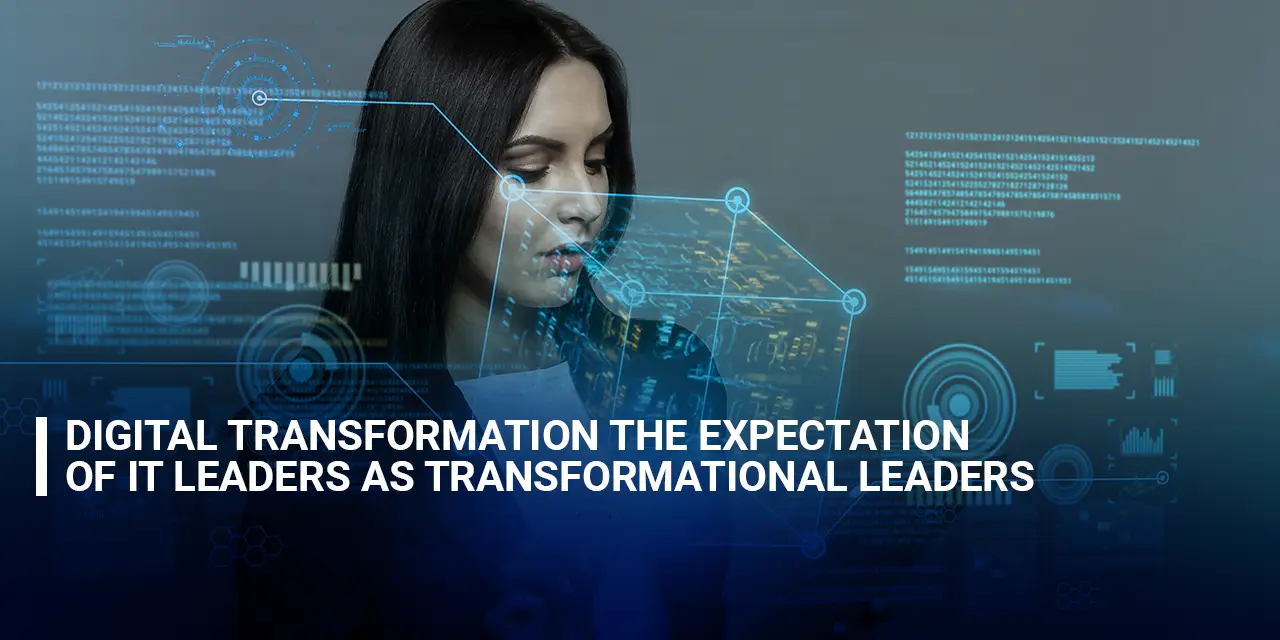Research
Share Knowledge
Brainstorm Ideas
The Digital Transformation Imperative
Digital transformation represents a strategic approach to leveraging technology to fundamentally alter business processes, enhance customer experiences, and create new value propositions. It involves a wide array of technologies, including artificial intelligence, cloud computing, data analytics, and Internet of Things (IoT), to optimize operations and meet evolving customer expectations.
With digital transformation becoming a strategic priority for many organizations, it has altered the traditional role of IT leaders. The IT department is no longer viewed as a support function but as a critical driver of transformation and innovation.
The IT Leader's Role Redefined
Historically, IT leaders were primarily responsible for ensuring the stability and security of an organization's technology infrastructure. However, in the digital age, their role has significantly evolved. IT leaders are increasingly expected to take on the role of transformational leaders, guiding their organizations through the intricate process of digital transformation.
Here's how the role of IT leaders has been redefined in the context of digital transformation:
1. Strategic Leadership
IT leaders are now strategic thinkers who contribute to the organization's overall business strategy. They must align technology investments and initiatives with the company's long-term objectives. This involves a deep understanding of the business, its market, and its customers.
2. Innovation and Change Management
As transformational leaders, IT leaders are tasked with fostering a culture of innovation and change within their organizations. They need to champion new ideas, encourage experimentation, and drive adoption of digital technologies to stay ahead in a constantly evolving landscape.
3. Customer-Centric Focus
Customer experience has become a central focus of digital transformation. IT leaders play a crucial role in understanding customer needs and expectations and translating them into technology solutions that enhance those experiences.
4. Collaboration and Cross-Functional Teams
Digital transformation often requires collaboration across different departments and teams within an organization. IT leaders need to lead cross-functional teams that work together to implement digital initiatives effectively.
5. Data-Driven Decision-Making
Data is a cornerstone of digital transformation. IT leaders are expected to leverage data analytics to make informed decisions, identify trends, and seize opportunities for improvement and growth.
The New Skill Set for IT Leaders
To fulfil their roles as transformational leaders in the digital age, IT leaders must develop a new skill set that goes beyond traditional technical expertise. Here are some of the skills and capabilities that are increasingly important:
1. Business Acumen
Understanding the organization's business model, competitive landscape, and market dynamics is critical for IT leaders to align technology strategies with the overall business strategy.
2. Communication and Collaboration
IT leaders need strong communication skills to articulate the value of digital transformation initiatives and collaborate effectively with various stakeholders.
3. Change Management
Leading change within an organization is a significant part of digital transformation. IT leaders must be adept at change management, ensuring a smooth transition for employees and stakeholders.
4. Problem-Solving and Innovation
Digital transformation often involves tackling complex problems and finding innovative solutions. IT leaders should have strong problem-solving skills and a mindset that embraces innovation.
5. Adaptability
The digital landscape is constantly evolving. IT leaders need to be adaptable and open to learning new technologies and approaches as they emerge.
The Future of IT Leaders as Transformational Leaders
The role of IT leaders as transformational leaders in the realm of digital transformation is poised to become even more significant in the future. As organizations continue to navigate the complexities of the digital age, they will rely on IT leaders to drive innovation, optimize operations, and deliver exceptional customer experiences.
To succeed in this evolving role, IT leaders must continue to adapt, expand their skill sets, and stay abreast of the latest technologies and trends. They must embrace a proactive approach to change and inspire their teams to think creatively and strategically. Additionally, fostering a culture of collaboration and cross-functional teamwork will be key to ensuring the success of digital transformation initiatives.
How Can We Help?
ITPN has leading-edge capabilities, top-class experts, and pioneering experience in this area. Please contact us if you have any questions or need assistance regarding our services.
Conclusion
The landscape of digital transformation is continually evolving, and the role of IT leaders has evolved with it. They are no longer confined to traditional IT management; instead, they are expected to be transformational leaders who guide their organizations through the complex process of digital transformation.
The success of digital transformation initiatives hinges on IT leaders' ability to align technology strategies with the organization's business objectives, drive innovation, and foster a culture of change and adaptability. As technology continues to advance and business landscapes change, IT leaders will play a pivotal role in shaping the future of their organizations, ensuring they remain competitive and customer-centric in an increasingly digital world. The expectation is clear: IT leaders are no longer just gatekeepers of technology; they are the architects of transformation.

